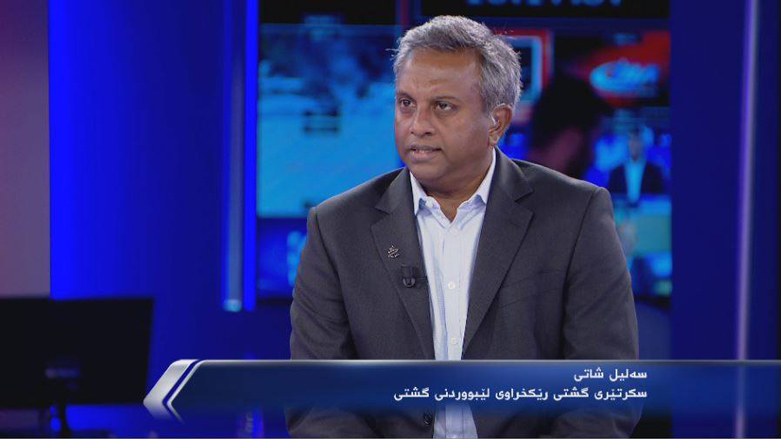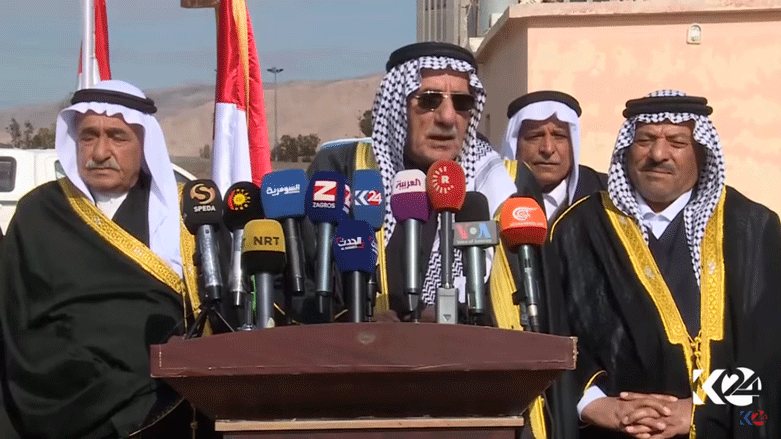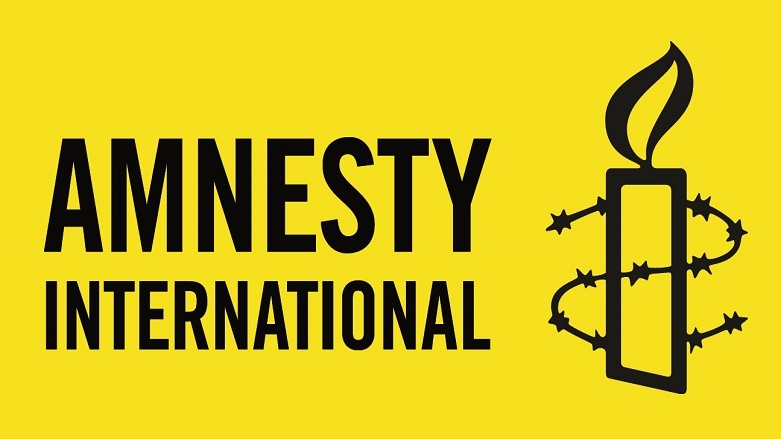‘KRG shouldn’t ignore violations despite challenges’

ERBIL, Kurdistan Region (Kurdistan24) – There is a heavy load on the Kurdistan Region due to the financial crisis, a war with jihadists and IDPs in the Region, but the government should not turn a blind eye toward human rights violations, said the Secretary General of Amnesty International Salil Shetty on Thursday.
In an exclusive interview with Kurdistan24, Shetty stated that Amnesty International understands the situation in the Kurdistan Region, especially its war with the Islamic State (IS), being home for over one million refugees and Internally Displaced Persons (IDPs) as well as suffering from a critical financial crisis.
He thanked the Kurdistan Regional Government (KRG) and the people of Kurdistan for welcoming IDPs and refugees, at the same time asked the KRG to ensure that human rights violations are not taking place against them.
Shetty noted that some Arab residents in the disputed territories in northern Iraq have complained that Kurdish Peshmerga forces have hindered their return to their homes after their areas were liberated from IS.
Recently, Kurdish officials and Peshmerga commanders responded to the Amnesty report and explained that the areas liberated from IS are not safe. Additionally, even Kurds are not allowed to return to those areas due to the improvised explosive devices (IEDs) that have been planted and wired by IS.
On May 4, Shetty and his delegates visited the Kurdistan Region and met with Kurdish officials, including the President of the Kurdistan Region Masoud Barzani, Prime Minister Nechirvan Barzani and the Chancellor of the Kurdistan Region Security Council (KRSC) Masrour Barzani.



According to Shetty, Amnesty visited the Kurdistan Region and Iraq to observe the human rights violations in the country and express their concerns to the Kurdish and Iraqi officials.
He stated that there were several violations committed in Iraq, especially by Iraqi Shia militia Hashd al-Shaabi.
Recently, Shetty and his delegates visited Karbala, Najaf and Falluja in Iraq. During these visits, he mentioned that they were mainly concerned about two issues.
First, Shetty pointed out that the Shia militia completely ignores human rights principles. He believes that even if a country is at war, there are some measures and human rights that must be considered to avoid war crimes.
The second point relates to the prisoners’ affairs in Iraqi jails, some who are arrested without valid reasons.
Shetty stated that there were 700 prisoners in a very small jail in Falluja, some of them children, living in very poor health conditions.
Amnesty has expressed their concerns and asked the federal government of Iraq to be more transparent with their decisions to arrest people. Baghdad has promised to investigate the case.
In another part of the interview, Shetty noted that there were more human rights violations in the central and south provinces of Iraq. “Civilians get executed, kidnapped; especially by the Shia militia…It is a serious case,” he concluded.
Editing by Karzan Sulaivany
(Kovan Izzet conducted the interview in Erbil)


.jpg)
